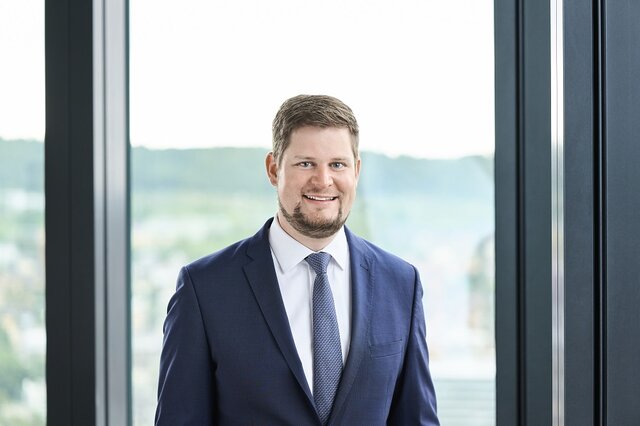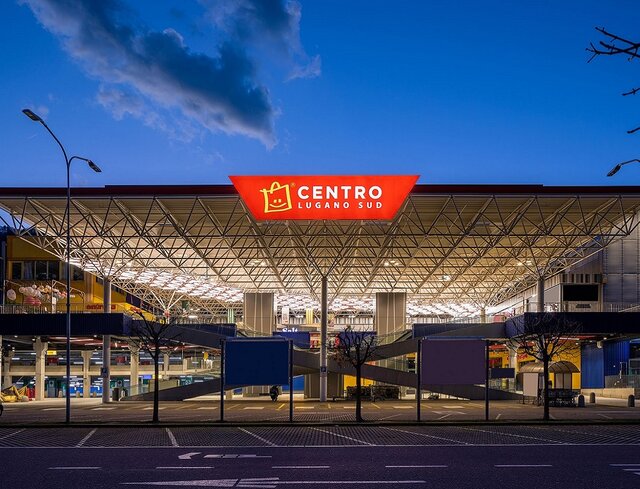
Investment markets – Investors can realise above-average earnings on the real estate market – as long they do not succumb to herd mentality, says Fabian Linke, Head Business Development at Swiss Prime Site Solutions, whose fund acts anti-cyclically.

Interview with Immobilien Business
Immobilien Business: Mr Linke, what are anti-cyclical real estate investments?
Fabian Linke: It refers to investments that are not viewed very positively by the majority of investors in a given market phase, but which later reveal great potential.
So an anti-cyclical investor is running against the market?
An anti-cyclical investor recognises opportunities for an investment in the future that the bulk of market participants do not. Shares, bonds, real estate – markets are dominated by a herd mentality. The vast majority swoops down on the same investment products in a boom and drops them again in bear markets. That means there are entry and exit opportunities in terms of market value.
Your fund, Swiss Prime Site Solutions Investment Fund Commercial, makes anti-cyclical real estate investments. What advantages do they offer?
With stable economic growth, the appeal of Switzerland as a business location, consistent net immigration, the shift away from globalisation in favour of local production and the development of more jobs in the tertiary occupational sector, we are observing promising investment opportunities in the anti-cyclical commercial real estate sector. We are currently seeing attractive acquisition opportunities in commercial properties with a clear return advantage over residential properties with modest risk profiles. Commercial properties continue to offer protection against inflation due to indexing of rent prices against the Consumer Price Index (CPI), predominantly or in full. Long-term rental contracts mean that cashflows are predictable and generally secured for years at a time. A further advantage comes from triple-net rental contracts, under which all maintenance obligations, as well as the owner’s costs, can be passed on largely to the tenant.
What risks do investors face?
Real estate is generally subject to changes in interest rates. As well as risks related to changes in value, associated refinancing costs can raise the interest on borrowed capital. When building or renovating, current supply chain issues mean that cost risks are a factor. Location and market risks and rental income, and conversely the vacancy risk, must be taken into account. For commercial properties, economic growth conditions also play a key role. For indirect real estate investment such as listed real estate funds or companies, there may also be risks associated with share price fluctuations in secondary trading.

Last year the fund purchased the Centro Lugano Sud shopping centre in Ticino. What happened after this acquisition?
This shopping centre is a good example of an anti-cyclical investment. Our extensive expertise and strong network meant we managed to achieve the first wins within just six months of purchase and further reduce vacancies. For example, we have entered into a new rental agreement for the first Oakley flagship store in Switzerland, and only the third in Europe. Demand for this location currently outstrips the supply of floor space. This investment shows that our detailed market evaluation pays off and the forecast business plan can now be implemented as intended. The key success factor in anti-cyclical investments is professional assessment of opportunities and risks.
That makes your job sound easy: simply purchase an empty property, find an agent to rent it out – then watch the returns flow. Couldn’t any other investor reproduce this model?
It’s not that simple. First, you have to find suitable properties that allow for implementation of attractive business plans, taking the risk-return ratio into account. We have an experienced acquisitions team with outstanding knowledge of the market and a comprehensive network, both national and international. Our marketing department also supports us in the active, systematic management of our properties. Here, we work very closely with our group company Wincasa. It manages 245,798 properties throughout Switzerland with a total value of more than CHF 80 billion, which gives it excellent contacts with potential users.
In recent years the real estate market has been on a constant upward trajectory. Could an anti-cyclical investment strategy have been implemented in this time?
Properties operate along a lifecycle. Accordingly, an anti-cyclical investment strategy can be implemented in, for example, the renovation backlog, vacancy management or exploitation potential. But as long as interest rates are falling and remain at a consistently low level, buy-and-hold real estate investors profit from the annual valuation tailwind.
But detailed analysis tells a different story?
Not in the market as a whole, but in segments. The growth of online trading has made retail properties unattractive to some investors. Office properties are another example. Some market actors have reservations about them, now that the pandemic has made working from home a more attractive option. Sceptics fear that companies will allow their employees to work from home for a few days a week, which means they need less office space. But that’s not what the figures are saying.
So you see office real estate as another anti-cyclical investment?
Not core properties. There is still high demand for real estate in top locations with long-term tenants. But office properties in B locations with rental contracts close to expiry, or which could benefit from refurbishment, can now be bought for prices that with the reduction of vacancies or a bit of regeneration yield the kind of returns that match our expectations.
And what are those expectations?
Institutional investors rely on stable, annual dividend payments from their investment products. So at SPSS IFC, our investment strategy has a particular focus on cash flow yield. In our first, abridged financial year, 4.05% of the total investment return of 5.75% came directly from cash flow after just 9.5 months. The success of the product is thus not based on revaluation but on effectively earned cash flows, the rental income from the properties. This can also be generated with the sale and lease back of commercial properties, which is why we invest in that sector as well.
You mean the purchase of the VF Corporation’s research and development centre in Stabio with a contract that allowed you to promptly relet to the company?
Yes, and with a term of 15 years plus an extension option. The VF Corporation, which controls brands including The North Face, Vans and Timberland, has its Europe HQ in Ticino’s Fashion Valley and is using part of the capital freed up by the disposal of the property to create an additional campus for its employees on site.
The fund was launched in December 2021 and now holds 18 properties with a total value of approximately CHF 440 million. What growth potential do you see for the future?
We want to expand the portfolio significantly through further capital increases. Here it is to our advantage that the fund owns the real estate directly rather than through a holding structure. That means that taxes are already paid at source. For the investor, dividend payments are tax-exempt.
